Ask 100 people and "protein" is the answer—heck, the only answer—most list when asked. Trust us. We tried. And it should come as no surprise. Protein builds muscles. Protein keeps you full. Protein ended the Cold War.

OK, maybe that last one is a stretch. And while protein is important, it's really just a small piece of the nutrition puzzle. Watching people struggle with that puzzle is what spurred us to write Man 2.0: Engineering the Alpha. After all, if all men knew what they needed to eat beyond protein, we wouldn't be in our current predicament.
We have created a society of men with low testosterone and growth hormone who endure epic struggles to gain muscle, lose fat, and live a more enjoyable life. You might think your hormones are fine until you get older. Pharmaceutical companies might have you believe that drugs are the only answer to improve your hormones. Both are flat-out lies. Meanwhile, men's testosterone levels have dropped more than 20 percent on average over the last two decades.
Overcoming that decline is the purpose of Man 2.0: We need to take charge of our bodies. We need to make you more manly again—or as we say, more alpha. No matter what you might have heard, you can improve your hormonal environment naturally. While there are many ways—all of which we discuss in Man 2.0—the best place to start is with your diet.
These are the nutrition basics you need to know to build the body you want and create a hormonal environment worthy of alpha status.
Carbs /// Then and Now
Carbohydrates seem to be the focus of most diets you read about—especially fat-loss diets—so it makes sense to start here. Carbs have taken a real beating in the media ever since some guy named Atkins decided we weren't allowed to eat doughnuts anymore. Prior to this we were allowed to eat doughnuts, but they had to be "reduced fat." This made us feel better about ourselves somehow.
All joking aside, carbs get a worse rap than they deserve. They come in a variety of forms, some of which are good for you, and some bad. The bad ones are usually highly processed and could barely be considered food other than the fact that they're edible. They may be delicious, but they're also the result of some crazy scientific processes.
Of course, if you process the crap out of anything, it reaches a point where it just isn't healthy anymore. This doesn't mean carbs are evil and to blame for all the ills of the world, from all-out war to the obesity epidemic. It just means processed foods are great at making people fat.

In the most basic sense, carbohydrates are collections of sugar molecules, which your body breaks down into fuel, particularly when you work hard. Sugars, starches, and fiber are all basic forms of the carbohydrate.
There are two main types of carbohydrates: simple and complex. We could also mention fibrous carbs that you can find in foods like green vegetables like lettuce, cabbage, broccoli, sprouts, spinach, cauliflower, peppers, cucumbers, zucchini—but we won't. For the purposes of this discussion of carbs, we only want to touch on stuff that counts.
We usually don't recommend counting calories—or carbs for that matter—coming from fibrous carbs. This doesn't mean that these foods don't matter. They do. But we've never met anyone who got fat eating too many vegetables. And after coaching thousands of people, we determined that eating more veggies has always been a good thing.
The Simple View of Simple Carbs ///
Simple carbohydrate sources include things like include table sugar, syrup, and sweetened soda. Most of the time, these carbs should be avoided—with the possible exception of a well-earned cheat day. They are the "bad carbs" that fitness pros talk about. Also included on this list are things like candy, snuggles, cake, beer, puppies, cookies, and unicorn magic.
In other words, the very idea of fun itself is now off-limits to you. What's allowed, you ask? Acceptable complex carbohydrates include: oatmeal, apples, and peas.
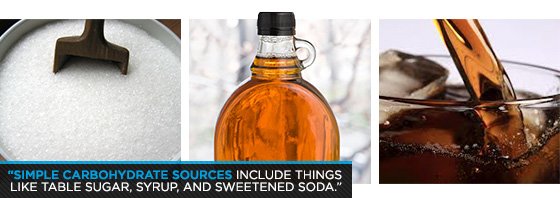
The Slightly-More Complex View ///
If that sounded a bit, um, simple, it's because it is. For a long time, people believed that complex carbohydrates were universally better for you than simple carbohydrates, but today we know that isn't always the case.
You see, your body takes both complex and simple carbohydrates and tries to break them down into usable sugar energy to fuel your muscles and organs. It's not the type of carbohydrate that matters when it comes to healthy hormones and metabolism, but rather how quickly your body can break it down and how much it will spike your blood glucose levels.
A slightly more sophisticated way to rate carbohydrate quality than simple/complex is something called the glycemic index (GI). The GI attempts to classify foods by how quickly they break down and how high they boost blood sugar levels.
For a while, the GI was all the rage, and people argued that by following a low-GI diet, you could keep insulin levels in check even while eating more carbs overall. This has turned out to be only partially true. While it's probably better to eat low GI foods than high ones, there probably won't be a tremendous difference in your waistline if you still eat your weight in sweet potatoes instead of Cheetos.
Neither low-carb diets nor low-GI diets are a magic pill for fat loss; the main thing is to eat the right amount of healthy foods that fuel metabolism, which in turn will help you burn fat. Another important thing to remember is that your body needs carbs, even if some of the fad diets tell you otherwise. Without carbohydrates, your body will begin to break down muscle tissue to fuel your body, which could sabotage your efforts to build muscle and transform your physique.
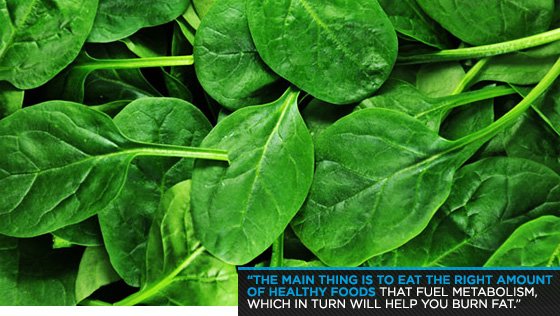
Carb lovers lament low-carb diets, and anti-carb crusaders posit that you can avoid carbs for the most part and still do well. The truth exists a bit in the middle ground. So yes, speaking generally you should avoid simple carbs and high-GI foods, but that doesn't mean you can eat complex carbs or low-GI foods all day either.
Most important, the problem with carbs is eating them alone. Instead, you should try to have carbs with protein. Eating carbs and protein together slows the rate of digestion of the carbs, lowers the glycemic or insulin response, and offsets some of the negatives that come with carbohydrate consumption.
Fats /// Rethinking History's Greatest Monster
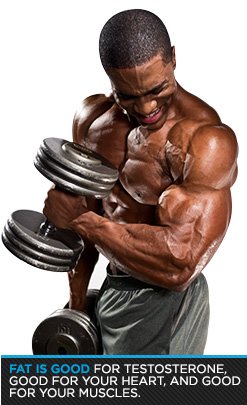
For a long time, fats were like carbs are now: blamed for every damn health problem possible. For nearly 20 years, low-fat was synonymous withhealthy. This is how many people—maybe even some of you reading this—still determine if something is safe to eat. If it's low fat, it has to be good. Or if it doesn't have saturated fat, then it's OK.
Lies piled on top of more lies! As our nation's fat consumption decreased, its obesity increased, according to CDC data. This was due to a variety of factors, including the frequency of meals and snacks, the exploding size of portions, and the overconsumption of sugar—often in the form of "low-fat" foods.
So what is the bottom line on fat? For starters, it's a necessary component of your diet, and something you're probably not consuming enough of. Fat is good. It's good for testosterone. It's good for your heart—yes, you read that correctly. And it's good for your muscles.
Did we say fat is necessary for testosterone production? Well, it's worth repeating.
Aside from the big T and making big muscles, fat also plays a crucial role in the general functioning of your body. It's a critical coating for nerves which speeds up conduction down the nerve. This ensures that every time a neurochemical signal is sent through your body—basically, any time your brain wants to tell your body to do anything—it happens efficiently.
Fat also serves as a substrate for a whole set of hormones known as eicosanoids. These are essential to regulate essential functions like blood pressure, inflammation, and even blood clotting. Fat is needed for basic human physiology, which is reason enough to include it in your diet.
But if there's one thing that the last few decades of fat-hate have taught us, it's that not all fats are equal. So here's what you should know about the different types of fats—and why eachneeds to be included in your diet, with the exception of trans fats.
Good Fat 1 /// Monounsaturated Fat
Monounsaturated fats are found mostly in high-fat fruits such as avocados, as well as nuts like pistachios, almonds, walnuts, and cashews. This type of fat can also be found in olive oil.

Monounsaturated fats help lower bad cholesterol and raise good cholesterol. They've also been proven to help fight weight gain and may even help reduce body fat levels.
Good Fat 2 /// Polyunsaturated Fat
Like monounsaturated fats, these good fats help fight bad cholesterol. You can find polyunsaturated fats in foods like salmon, fish oil, sunflower oil, and seeds. Polyunsaturated fats also include omega-3 and omega-6 fatty acids, which are often referred to as essential fatty acids, or EFAs.

EFAs cannot be manufactured by our bodies, and so it becomes essential to ingest them. And because your body needs these nutrients to function optimally and remain healthy, it's your job to make sure your diet has enough of these fats to avoid problems and breakdown.
Good Fat 3 /// Saturated Fat
Saturated fats might be the most misunderstood substance you can eat. And for good reason: There have been studies linking high intake of saturated fats to heart disease. So sayeth the headlines. Case closed, right?
It turns out most of these studies also create more unanswered questions than The Riddler. When researchers have gone back in and looked at the data from all the countries where data was available, they saw there actually was no link between fat consumption and heart disease deaths.
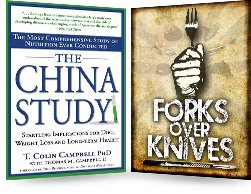
Books like The China Study and movies likeForks Over Knives have pointed the finger at saturated fats—and all animal fats—as the reason for seemingly all health problems. However, these releases, like the studies they cite, take a slanted bias toward the saturated fat hypothesis and completely ignore populations that are incredibly healthy despite diets based on saturated fats.
There are several studies of hunter-gatherer tribes that consumed 50-70 percent of all their calories from saturated fats without any health problems. For example, people who live in Tokelau, a territory off of New Zealand, eat a diet that is 50 percent saturated fats, and they have cardiovascular health superior to any other group of people. Yet such populations have largely been ignored.
Even Walter Willett, chairman of the Department of Nutrition at Harvard, has publicly stated, after a 20-year review of research, that fats—and more specifically saturated fats—are not the cause of the obesity crisis or heart disease.
Listen, saturated fat is one of the best sources of energy for your body. This is why your bodynaturally stores carbohydrates as saturated fat—whether you want it to or not. Are you going to argue with one of the most basic structures of how your body was intended to work?
Need more convincing? Saturated fats are some of the most satiating foods, meaning they keep you fuller longer. Research shows diets that are higher in saturated fats are often lower in total calories consumed. And, as we alluded to already, saturated fats boost testosterone.
That leaves you with one option, assuming you're not a vegetarian: You should be eating red meat, dairy, and eggs to consume your share of saturated fats.
Bad Fat 1 (and only) /// Trans Fats
Trans fats are the black sheep of the fat family. They aren't just bad fats; they're the worst fats, and in truth, one of the worst forms of food you could possibly consume. They're found in foods such as French fries, potato chips, and many fried foods.
Some trace amounts of trans fats naturally occur in meats and other foods, but by and large, most are not naturally occurring. Instead, they are manufactured by a chemical process called partial hydrogenation. Manufacturers take liquid vegetable oil—an otherwise decent monounsaturated fat—and pack it with hydrogen atoms, which convert it into a solid fat. This makes an ideal fat for the food industry because it has a high melting point and a smooth texture, and it can be reused in deep-fat frying.
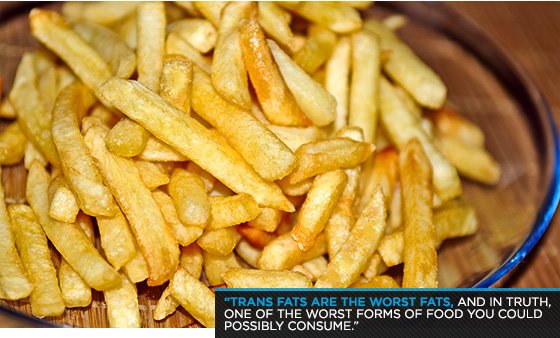
Essentially, trans fats come about as a result of overprocessing foods in order to offer consumers and vendors a longer shelf life. If you are serious about your goals, you should try to avoid trans fats at all costs.
However, we can't escape the world in which we live, so we advocate a moderate approach. If you limit your intake of junk foods, exercise regularly, and get good nutrition otherwise—including a variety of healthy fats—then chances are, you can have the occasional Twinkie once every few months and be OK.
Protein /// The Alpha-Macro
Both carbs and fats have spent their time as public enemy No. 1, being demonized or lauded by turns. On the other side of the spectrum, our friend protein has enjoyed a steady rise to prominence and popularity.
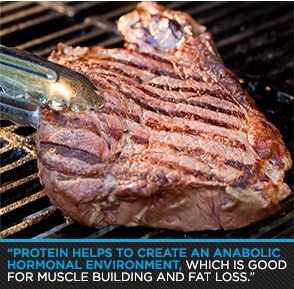
A favorite among bodybuilders, athletes, and just about any fitness enthusiast, protein is used by your body to repair damaged muscle, bone, skin, teeth, and hair, among many other functions. Think of it as the mortar between the bricks; without it, the entire structure of your body begins to break down.
Protein helps to create an anabolic hormonal environment, which is good for muscle building and fat loss. Along the lines of the brick metaphor, it also provides the materials used to build your muscles.
Protein is comprised of smaller molecules called amino acids. There are 22 standard amino acids, nine of which can only be obtained through your food. Your body can manufacture the rest. The nine you have to ingest are called the "essential amino acids." These are:
- Tryptophan
- Lysine
- Methionine
- Phenylalanine
- Threonin
- Valine
- Leucine
- Histidine
- Isoleucine
A complete protein—also known as a whole protein—contains adequate portions of those nine amino acids. By contrast, an incomplete protein is one that lacks one or more of the nine essentials.
Amino acids also help your body create hormones that help regulate things like blood pressure and blood sugar levels, which are directly responsible for your metabolic rate and muscular growth. In short, protein is extremely important, especially the complete proteins found in foods such as fish, poultry, eggs, red meat, and cheese.
Sense a trend here? The worlds of flora and fauna have a lot to give us—more so than any processed food that comes plastered with the words "natural" or "healthy" on its packaging. Nature got it right the first time around, so build your diet around whole foods and critters.
Everything else is just details.

No comments:
Post a Comment